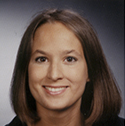Bioactivity Assays: Putting the Puzzle Together
This webinar will look at a wide variety of therapeutic proteins and illustrate some best practices in method development that result in reliable, reproducible and precise assays, and discuss which assays may be best for your product and development program.
Summary
Functional bioassays reflecting a drug’s mechanism of action (MoA) are required by regulatory authorities when working with anti-cancer and anti-inflammatory drugs (e.g., therapeutic antibodies) to ensure efficacy and safety. In past years, the requirement for bioactivity testing changed from later phase lot release and stability testing to additional applications like biocomparability testing for follow-on biologics, accelerated stress condition testing and confirmation of successful production scale up. Therefore a suitable bioassay is needed at a very early time point.
Many times more than one assay is required since drugs such as therapeutic antibodies follow more than one MoA. The assays used need to be reliable, reproducible and precise, which is reflected by the rising acceptance of surrogate approaches whenever primary MoA assays are found to be tedious, time consuming and sometimes highly variable. With all of these things to think about finding the correct assay for your application may be challenging.
Case studies for a range of therapeutic antibodies will be presented covering the classical immunological MoA assays (e.g., ADCC, CDC and ADCP) as well as methods for therapeutic mAbs with soluble targets. These case studies will provide you with information around the options that you have and which may be most suitable for your product and development program.
Speaker

Ulrike Herbrand, PhD
Scientific Officer, Biosafety and Bioassays Services
Charles River Laboratories, Germany
Ulrike Herbrand joined Charles River in 2007 and works as a scientific officer for bioassays. She gained a PhD in biological sciences during her time at the Max-Planck-Institute for Molecular Physiology in Dortmund (Germany) and worked five years in postdoctoral positions at medical research centers in the field of cancer research.